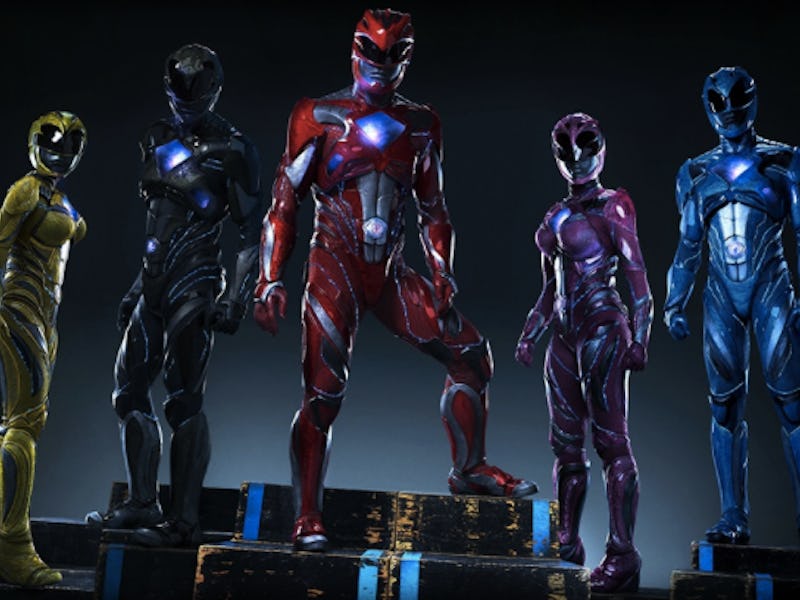Why Nostalgia at the Box Office Is Good for America's Brain

If the latest box office charts are any indication, a lot of adult children went to the movies this weekend: Beauty and the Beast, Power Rangers, and Kong: Skull Island, which all featured old and well-loved characters, dominated ticket sales, while more novel films like Life and Get Out fell behind. One thing that’s clear is that nostalgia sells — but why it’s so irresistible is a little less obvious.
Scientists will tell you that nostalgia is a psychological phenomenon that comes with unexpected benefits. In his 1992 report “Nostalgia: a Neuropsychiatric Understanding”, Alan H. Hirsh called it “a longing for a sanitized impression of the past”. In other words, when we feel nostalgic, we’re yearning for a version of the past that we’ve edited all the shitty parts out of.
So, even if your actual experience of watching Power Rangers as a child on Saturday mornings was preceded by fights with your siblings or a rough time at school, nostalgia cuts those parts out, leaving you to remember only the blissful simplicity of a time when watching five Spandex-suited teens fight a space witch was your only concern.
Studies on nostalgia suggest that allowing your mind to wander back to those edited memories isn’t such a bad thing.
A nostalgia double-whammy.
Nostalgia might very well be a coping mechanism: A 2006 study showed that people felt most nostalgic when they were lonely, and another suggested that people turned to nostalgia when they felt especially anxious. In a 2013 interview with Science Friday, Clay Routledge, the social psychologist at North Dakota State University behind those studies, explained the link between distress and nostalgia, saying that we “see nostalgia as a psychological resource that people can dip into to conjure up the evidence that they need to assure themselves that they’re valued.”
'Beauty and the Beast': another nostalgia-heavy box-office favorite.
In addition to soothing people in the present, nostalgia can have an impact on the future. In an article for Scientific American, Routledge explained that recalling cherished memories “promotes the feeling that life is full of meaning and purpose.”
Ultimately, what’s thought to trigger nostalgia is the feeling of being psychologically threatened — whether by loneliness, the sense of failure, fear of meaninglessness, a decline in social connections, and other similarly dark experiences. At this uncertainty-riddled moment in history, it makes total sense that American moviegoers are looking to the (edited) past: Unlike the present, it can be counted on not to suck.